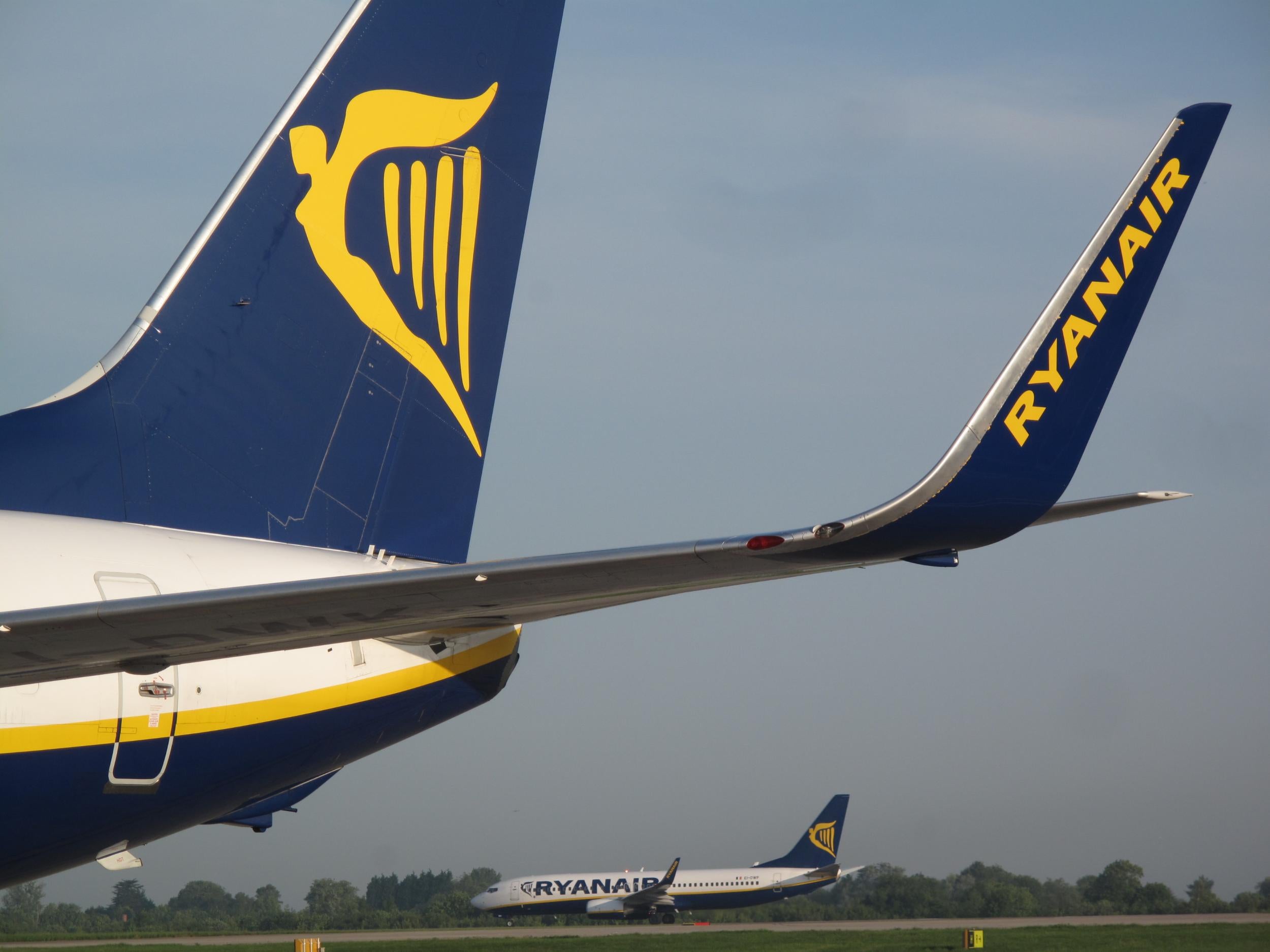Ryanair defies terror threat and weak sterling to report profit spike
Budget airline celebrates despite challenging trading conditions and predicts fall in cost of air fares to Europe

Ryanair has predicted that air fares in Europe will decline by 5 to 7 per cent “due to weaker sterling, and continuing excess capacity in Europe”.
The Irish airline, which is Europe’s biggest budget carrier, has reported a 6 per cent rise in profits to €1.316bn (£1.14bn). It carried 120 million passengers in the year to 31 March 2017, equivalent to twice the population of the UK. Average profit per passenger was €11 (£9.50).
Ryanair’s chief executive Michael O’Leary said the profit had been made ”despite difficult trading conditions caused by a series of security events at European cities, a switch of charter capacity from North Africa, Turkey and Egypt to mainland Europe, and a sharp decline in sterling following the June 2016 Brexit vote. We reacted to these challenges by improving our customer experience, and stimulating growth with lower fares.”
The airline says: “As legacy competitors in Italy, Germany, Romania, and Poland undergo deep restructuring, the scale of our airport growth negotiations is accelerating.
"We continue to juggle more opportunities for 2018 and 2019 than our existing fleet growth can accommodate.
“As competitor airlines undergo deep restructuring, we are aware of the need to have additional short haul aircraft to respond quickly as these unique growth opportunities arise.”
The airline says it is concerned at the “significant uncertainty over the terms of the UK’s departure from the EU in March 2019”.
Ryanair plans to continue to pivot growth away from the UK in 2017 and 2018 “to capitalise on the many growth opportunities elsewhere in Europe”.
Join our commenting forum
Join thought-provoking conversations, follow other Independent readers and see their replies
Comments